During contentious debate, state Supreme Court candidate pledges to recuse herself from Eric Holder group's lawsuit
MILWAUKEE -- Two candidates for Wisconsin Supreme Court argued on Monday, March 26 over when to step away from cases to prevent accusations that they were being bought through political contributions.
Rebecca Dallet, a Milwaukee County Circuit Court judge, announced during a forum at the Milwaukee Bar Association that she would recuse herself from an elections case involving a group spending money to get her elected. Sauk County Circuit Court Judge Michael Screnock said he would not make such a "blanket" recusal for cases involving his biggest supporters.
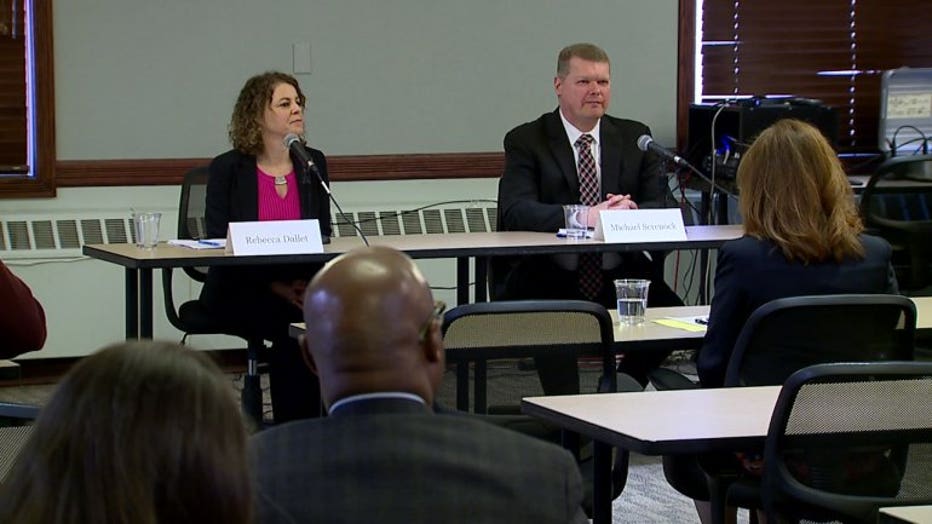
Rebecca Dallet, Michael Screnock
Millions of dollars from numerous interest groups are pouring into the race between Dallet and Screnock, leading to accusations that the respective candidates are for sale. The winner of the April 3 election gets a 10-year term on the court.
Dallet's recusal pledge is for an elections lawsuit filed by a group headed by Eric Holder, who was attorney general under President Barack Obama and has campaigned for Dallet. Holder's group is seeking to force Gov. Scott Walker to hold special elections for two legislative seats.
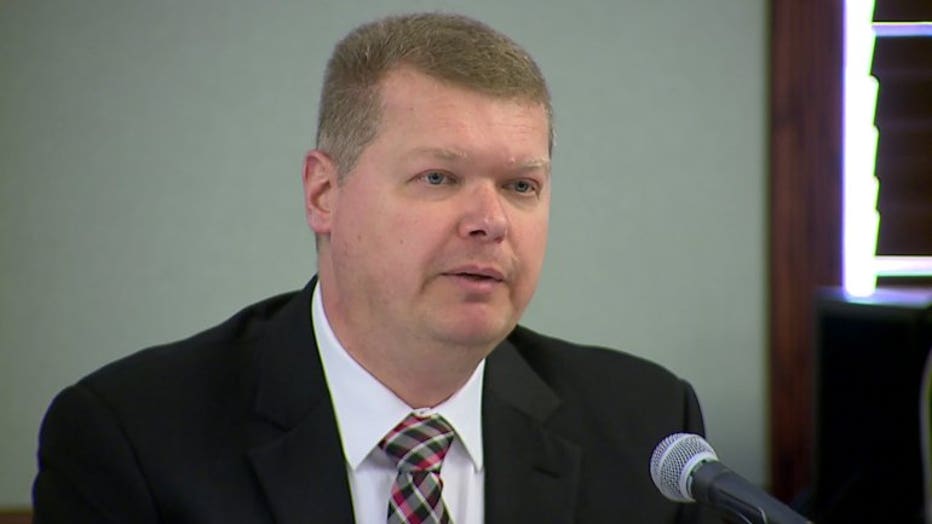
Sauk County Judge Michael Screnock
"I make the commitment right now, here, to all of you, that I will recuse myself from a case if that group that’s spending that money is in front of me," Dallet said. "Judge Screnock, will you make the same commitment to recuse yourself?"
Screnock said he would take it on a case-by-case basis. Screnock has the backing of the National Rifle Association, the Republican Party of Wisconsin and Wisconsin Manufacturers and Commerce, the state's largest business group.
"It would be inappropriate to make such a blanket pronouncement now without knowing what the case might be, what the circumstances might be," Screnock told FOX6 News after the forum.
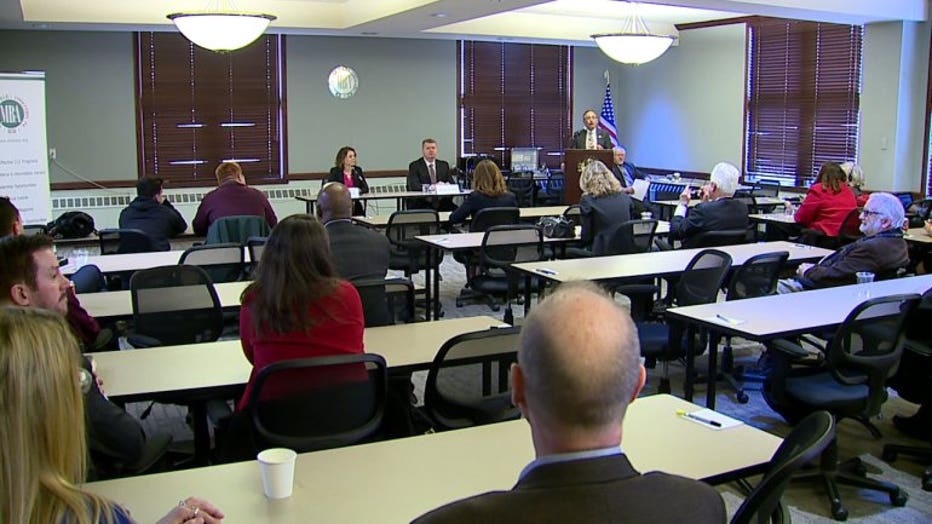
Dallet has staked her campaign to a message that the current court is "broken" because judges aren't forced to recuse themselves in cases involving their campaign supporters.
But Screnock said Dallet was hypocritical because she's accepted donations from attorneys who have cases pending in front of her in Milwaukee County. There were 39 different attorneys involved in hundreds of cases, he said.
"While she can talk the talk about recusal, her actual actions during this campaign show she doesn’t actually walk the walk," Screnock said.
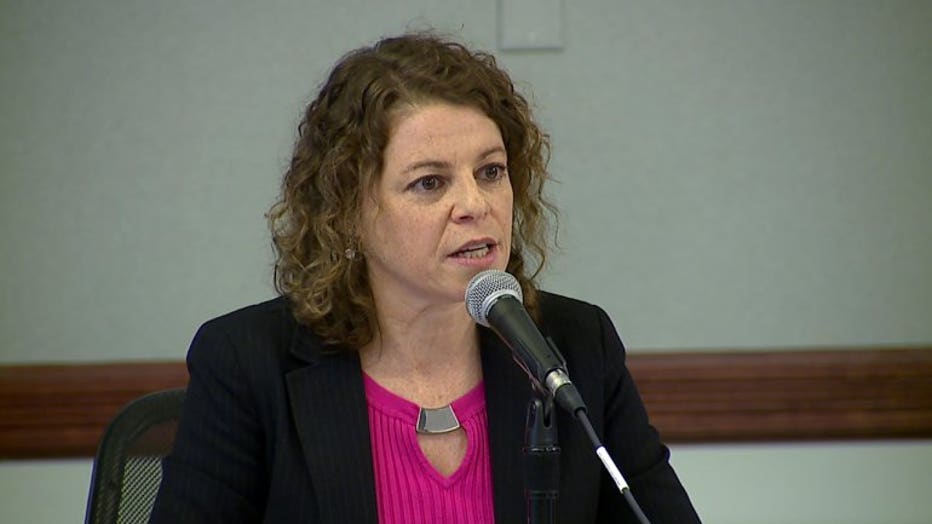
Milwaukee County Judge Rebecca Dallet
Dallet has also faced questions after Republicans circulated audio of her appearance at a fundraiser in San Francisco last week.
"San Francisco, like, this is awesome," Dallet says on the recording. "I know your values are our Wisconsin values that we've lost along the way, and I appreciate that you're all here."
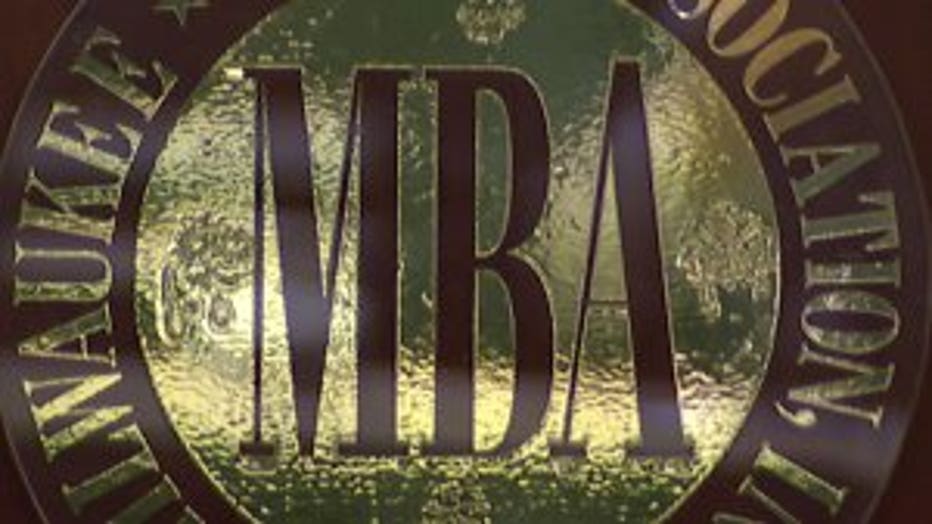
Dallet told FOX6 News that the only "lost" value she was referring to was an independent judiciary, though she mentions others on the recording -- including "clean air and water," "working people's rights," and "public education that's incredible."
"We have lost the values of fair and independent courts in our state," she told reporters Monday. "We have strayed from that, and that has happened for the last decade. And that is because the special interest money is buying justice or a justice."
Time and again, Screnock said he was fair and impartial.
"My fidelity as a judge is to the law and the law alone," Screnock said.
Incarceration rate, school shootings
The candidates were split about what the state Supreme Court could do about Wisconsin's black incarceration rate.
"That is something that as a community, all of us need to be talking about and dealing with racial bias," Dallet said, referencing the high incarceration rate on Milwaukee's north side. "We know that there is implicit bias."
Screnock said only that he would support ongoing academic research on the issue.
The two candidates also splintered when asked about the court's role in preventing school shootings. Screnock said the question should be left to school boards and politicians.
"It is inappropriate for a candidate for judicial office – much less a sitting judge – to be articulating what specific types of gun control or other safety measures they think are lawful and appropriate," Screnock said. "This is not a discussion for the judiciary, not a discussion for the judiciary to solve."
But Dallet said justices could be involved in discussions about gun violence prevention that would not infringe on people's ability to hunt and protect themselves.

